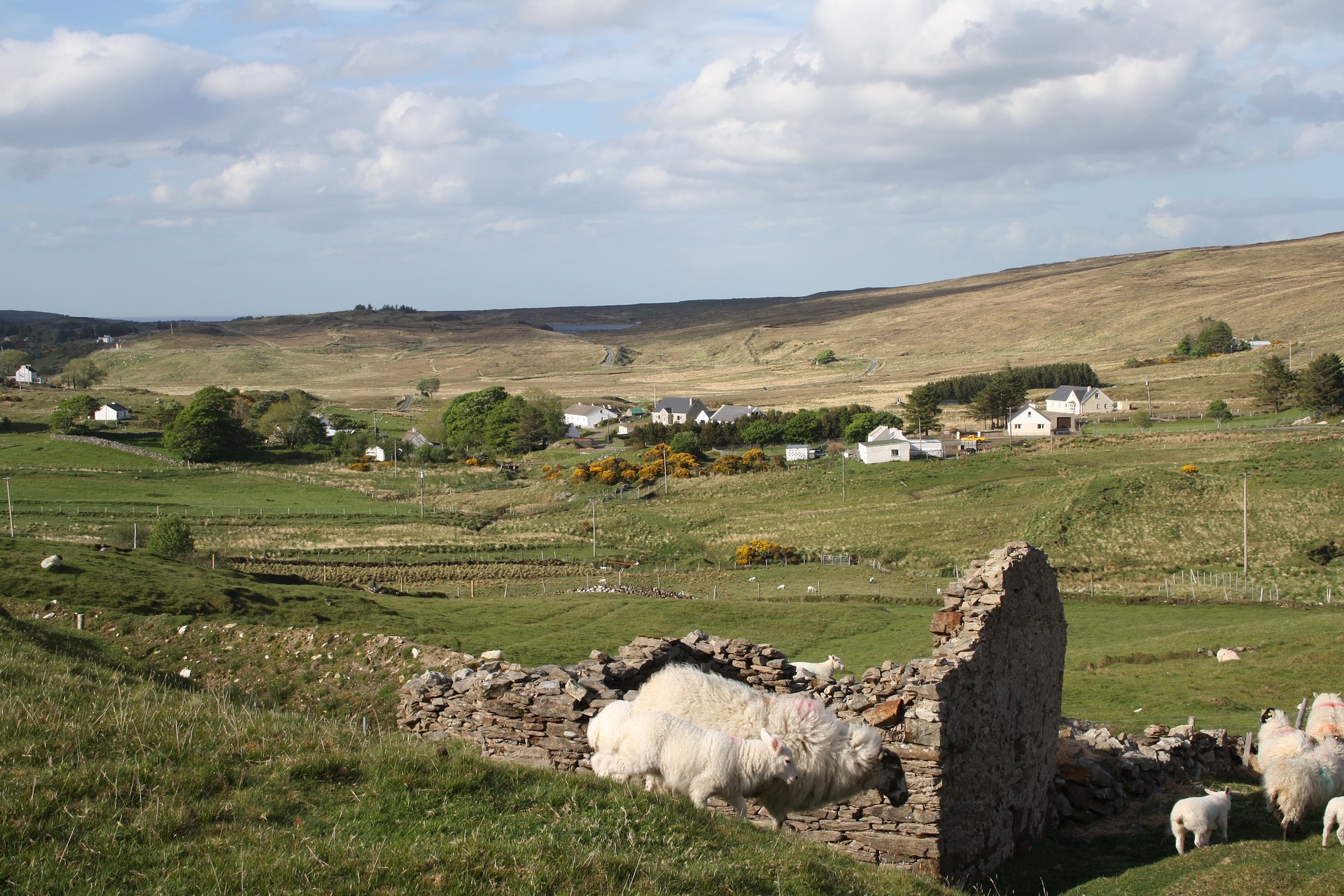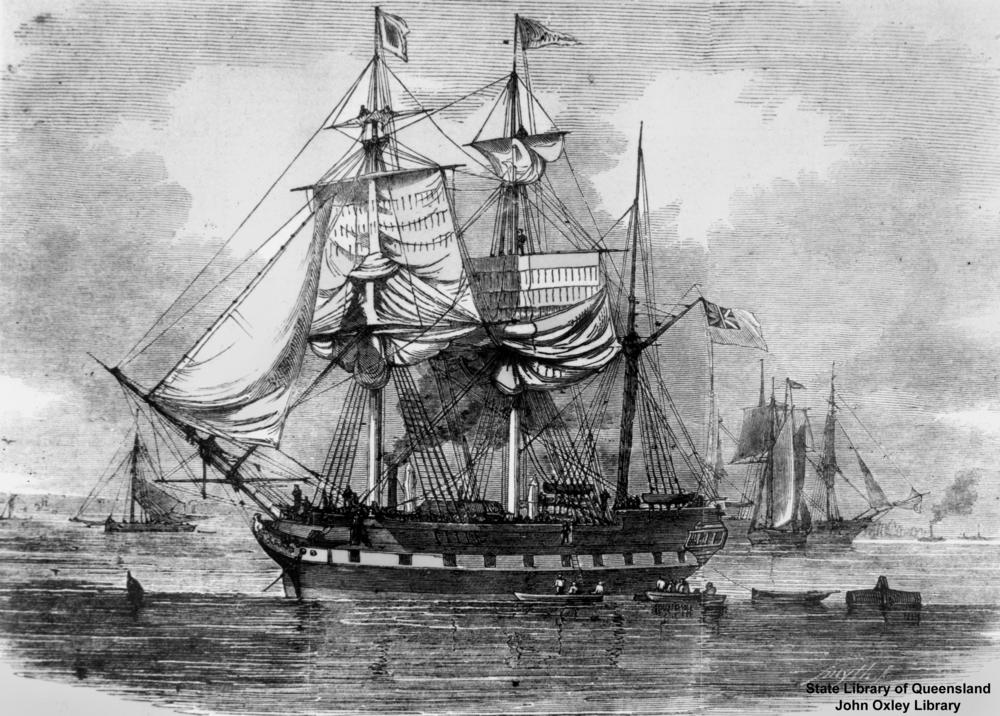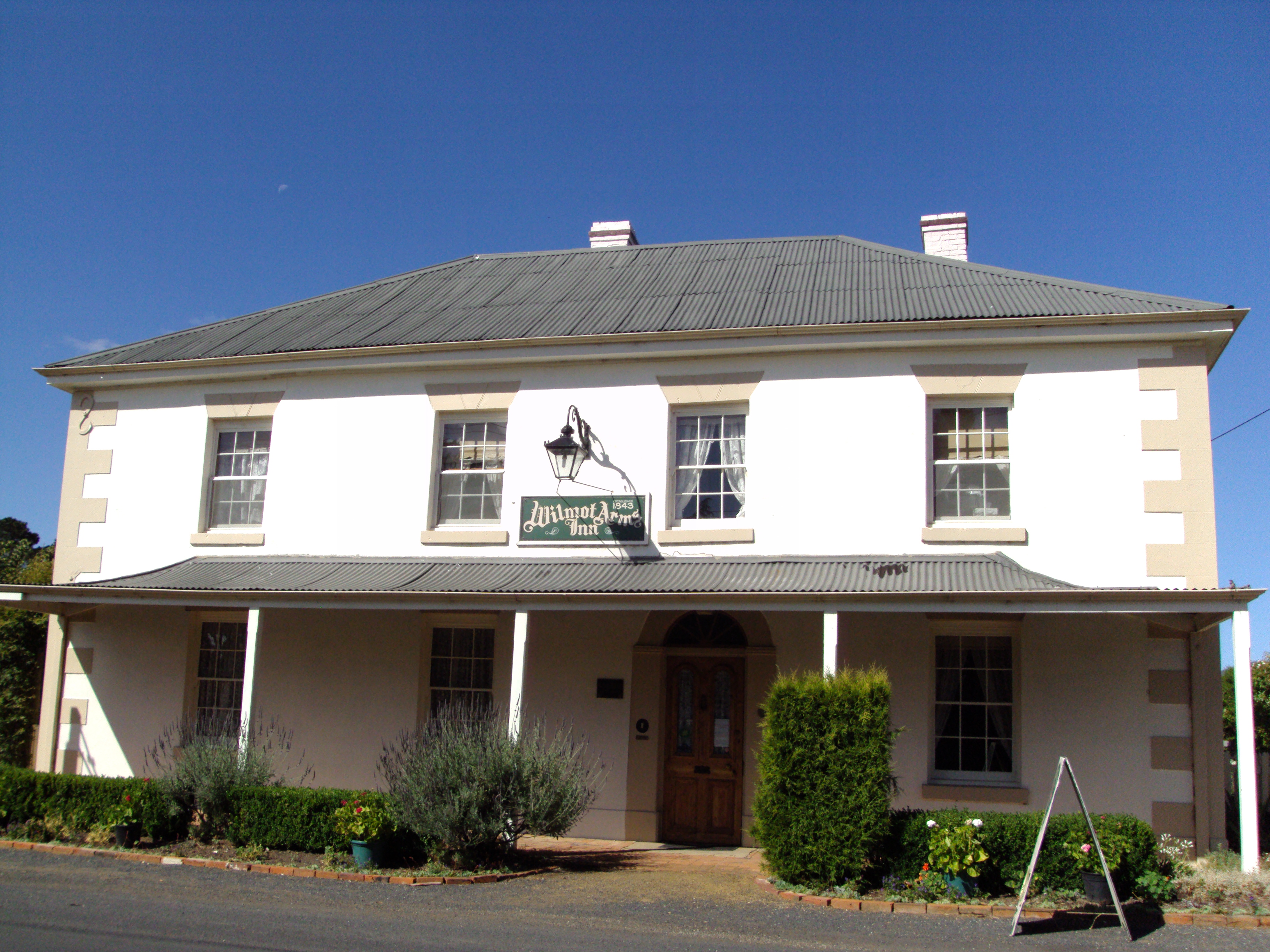
Donegal in Ireland. Birthplace of John McKinley
As we all know, it is very hard to research ancestors from Ireland. Each earlier generation brings new complications and less places where their name might have been recorded. The sketchy details I have of the McKinley family are hard won and still too meagre to tell us much. But here’s what I have gleaned:
John McKinley was born in Donegal in about 1822 and was the son of James McKinley. Nothing is known of his siblings.
John’s grandfather – Mr McKinley – seems to have come from Scotland and only lived in the Donegal region for one generation. We don’t have a name for him. We do know, however, that John’s father had a brother Patrick and a sister Mary.
John’s Uncle Patrick married a woman of unknown name and had sons Patrick, Michael, Andrew and James. Those four were my John McKinley’s first cousins.
John’s Aunt Mary married James McGarvie in Donegal and had children including William McGarvie.
John seems to have grown up with his McKinley cousins somewhere near Meenaneary in Donegal.
Somewhere around 1820, Aunt Mary, her husband and perhaps some children moved to Enniskillen in Fermanagh. As a young adult, John also moved to Fermanagh, most likely boarding with his McGarvie cousins. His cousin William McGarvie was born in the same year as John.

Enniskillen in modern times, still looking very old-worldly. By User: (WT-shared) Plug at wts wikivoyage [Public domain], from Wikimedia Commons
From Fermanagh, John made his way to the city of Derry in the county Londonderry.
He may have been the John McKinley who appeared at the Antrim Quarter Sessions charged with stealing a quantity of linen yarn at Belfast in 1839. The result of that court appearance is not known and if that was our John, the case must have been dismissed. So possibly he was in Belfast then but he was not the only man of that name in the north of Ireland. What we know is that by the early 1840s he went to Derry.
Somewhere on this journey he met his future wife, Alice Bowles. They married in about 1842. Two children, Mary Ann and James Patrick, were born to John and Alice in 1844 and 1846 respectively.
The young family struggled and despaired.
Just about everything we know about this family comes from that generation of cousins, because all the named young people managed to flee to country to a safe home.
The children of Patrick McKinley emigrated to the United States. Patrick, Michael, Andrew and James settled in Pennsylvania where their name morphed to ‘McGinley’.
William McGarvie emigrated to Victoria, Australia where he was married in 1854.
The cousins emigrated as assisted emigrants but for some reason this option was not available to John. Maybe he was rejected on health grounds or he lacked the skill set required. It’s a puzzle.

Movements of John McKinley from Meenaneary (near Killibeg) to Enniskillen then to Londonderry.
Then in December 1847 or thereabouts, John McKinley took the gamble of his life, which qualifies him as the subject of a blog about luck.
Details are still sketchy, but John and his wife were arrested for stealing two geese. As was the system back then, they were placed in a holding cell from the time of accusation, awaiting trial to prove their innocence or receive sentence.
I cannot prove this, but I am pretty certain that this was a deliberate move to achieve emigration from the country.
There used to be lots of stories about convicts having done this in Tasmania. Many of those stories were the descendant’s way of reestablishing their family reputation in a time when society descriminated against the descendants of convicts. The ‘deliberate ploy for emigration’ and the ‘he/she stole to save a starving family’ are good ways to deflect shame and dishonour. I am always skeptical when I hear it. But once in a blue moon it was true. If the jury detected it as a motive for crime, they assigned a prison sentence instead. Or as in the case of John and Alice, they would sentence the husband to transportation and exonerate the wife entirely as acting under her husband’s influence. Looking through the court records this result was common for husband/wife first crimes.
John and Alice wouldn’t have known this. Their theft, conviction and sentencing resulted in John facing transportation and Alice facing a life without him in Fermanagh as single mother to two infant children.
The jury deliberated on this one and decided that since neither had a prior record they should be afforded lenience.

Ship Artemisia built 1847. Not used as a convict ship but the same build as several convict ships of 1850. https://upload.wikimedia.org/wikipedia/commons/a/ac/Discovery_at_Deptford.jpg See page for author [Public domain or Public domain], via Wikimedia Commons
But they didn’t give up. Two weeks later his wife was back in gaol, having committed an offence on her own. An anxious wait must have ensued as she was once more kept in the holding cells awaiting trial. Her children were probably with her in the cell.
This time it worked. Alice received her own sentence. She and the children were shipped out first.
John languished a whole year in gaol in Fermanagh before the transportation occurred.

The 1836 convict built Ross Bridge crosing the Macquarie River in Tasmania by denisbin via flickr, https://creativecommons.org/licenses/by-nd/2.0/ , no changes made.
Once in Van Diemen’s Land, John McKinley and his wife still had a sentence to serve before they could resume their own life. Their little boy died very soon after arrival, a fact which obviously depressed Alice. John would not have known of the loss of his child until they met. Their daughter was safe in the Orphan School where she received something of an education in being a domestic servant.
Both John and Alice were exemplary workers and servants and received their Tickets of Leave in almost record time. Two years after Alice’s arrival in the colony they were back in the one household. John gained further brownie points by accepting a position as a constable.
In those days, constables were basically police officers/sheriffs and council inspectors all rolled into one. They were often chosen from among the better behaved convicts with the additional incentive of six months knocked off the sentence as well as better working conditions than they would have as labouring men. But the job came with animosity from many fellow convicts who maintained an ‘us or them’ mentality, considering the constables to be turncoats and betrayers.
John committed one offense as a ticket of leave constable, probably a genuine mistake. He illegally impounded a horse that should have been left where it was.

Conduct Record John McKinley CON33/1/92 at Tasmania Archives
But finally, after serving only half his sentence, John McKinley received a conditional pardon. He and Alice, now in their early thirties, settled in Kempton where John continued his employment as constable for the rest of his working life. A large family was born to them.

Civil death registration of John McKinley Tasmanian Archives RGD35/1/55 no 757
It was a long hard struggle, but that gamble paid off and changed the family fortunes forever. Their descendants have lived comfortably ever since.

The Wilmot Arms former hotel in Kempton Tasmania. Built 1843. A part of the new home town of John and Alice mcKinley/McKinlay. Photo by denisbin via Flickr https://www.flickr.com/photos/82134796@N03/10375487893 Some rights reserved https://creativecommons.org/licenses/by-nd/2.0/ . Image unaltered.
Hi, I am also a descendant of John and Alice. Their son Daniel born at Kempton was my gg grandparents. Thank you for writing this. It provides more information than what we have, which is very much appreciated. I also have a little more that can be added to this story if you are interested. Regards Ruth
Hi Ruth, My name is Elly Hoyt and I’m a singer-songwriter from Tasmania (I currently live in London). I’m fascinated and moved by Alice and John McKinley’s history and hoping to write an album based on their story. If you have any more information or would like to share any oral stories, I’d be very interested. Cheers Elly
Hi Elly, Lovely to hear from you! I hope all is well for you in London. We worry about the news we hear. from there.
I am the great granddaughter of Daniel (Sorry the previous message was incomplete.) My mother, Lucy Blackwell (nee McShane), daughter of Letitia McKinlay, is 94 and still very clear in her mind. She remembers Daniel playing a violin sitting in his rocking chair, at his home in Kempton. Lucky for us, Mum has always had an interest in family history and started asking questions back in the 1950s. When she asked her mother about her grandparents her mother told her it was not good to delve into history. she added that things were very different in the past and told her a story about a young girl who was desperate to leave Ireland and made a plan with her aunts help, to be transported.. Her aunt put some shoes under the girls bed and then reported them stolen. This story was told well before John and Alice’s convict records were discovered. So yes I think we are pretty safe in saying they planned to come out!
I am not sure how much you know so I will just mention a few things that aren’t in the story which you may or may not be aware of and may be of interest to you.
Did you know that Alices’s sister, Mary Bowles was charged with John for stealing fowl? In a Fermanagh paper 18 Jan 1847 it states that they stole from Elizabeth Smith where on Johns record it says JM Hurst. It also says Mrs Smith on Mary’s record. Mary has her religion listed as a RC, John as C of E and Alice as a Protestant. No doubt religion caused some issues for them as well! I guess you know that John is buried at Kempton in the C of E Cemetery with Mary’s second husband Charles Hillier and Alice is buried in the Catholic Cemetery with Mary and two of Mary’s children. Mary was married three times and had a pretty hard life after arriving here. (We can add to her story if you are interested.)
Did you know that John had a brother James who came here as a soldier? In 1850 he stole a watch in Launceston, story goes it was because he didn’t want to be sent back to Ireland. (His convict record is available on LINC).
He was sent to Port Arthur. He received a free pardon in 17 Nov. 1857. In 1859 a daughter Mary Ann was born to James McKinley, Snr Constable at Port Arthur.
Anyway, That’s a little bit I can add now. I am meeting with Mum and a few McKinlay cousins to talk family history on Thursday so your message has come at a good time! They will be very pleased to hear of your interest from afar.
We recently had a descendent of John and Alice contact us from Virginia, USA – she is very keen to come back to Australia and meet extended family. – so we have scattered around the world.
Look forward to hearing from you again soon. Bye for now,
Best regards
Ruth Moon
You have some wonderful memories here. I descend from Mary Ann, John and Alice’s daughter who came out on the boat with her mother. When she was an old lady, Mary Ann lived for a while with her son Thomas and his family at Melton Mowbray in the Tasmanian midlands. She had poor mobility but she cared for her grandchildren while Thomas and Hester did the farmwork. My grandmother Beryl remembers her very fondly. She used to tell them stories of her school days where she made her own clothes, learned cleanliness and had to memorise all the chief ports of London!! We now know that she was talking of the Orphan School in Hobart Town. I’ve no idea how they fitted her in, they were a family of nine children in a two bedroom house with all the males in one room, all the females in the other.
Mary Ann’s death is recorded in a family bible in our family that has been passed down daughter to daughter in Hester’s family to the present day. Hester had it at the time of her mother in law Mary Ann’s death. I now have the bible and it will eventually pass to one of my daughters.
Hi Elly, Lovely to hear from you again! Thank you for these stories – the bible is such a treasure. Mum and I would love to meet with your grandmother and mother if they are happy to meet with us. Maybe by sharing some stories we can piece together a little bit more about our ancestor’s lives. If they are interested, please pass on my phone number is 0417506195. I live at Mt Rumney which is near Hobart. Mum lives at Elderslie which is about 20-25minutes drive south of Kempton on the Clifton Vale Road. I can travel to meet them anywhere in the state but at 94 Mum isn’t up to doing more than a day trip now.
By the way, we love your singing and are looking forward to the McKinlay story songs very much!! I guess you have seen Maryann’s name on the sculpture dedicated to the orphans in Hobart?
Bye for now, Kind regards
Ruth Moon. (Née Blackwell) Daughter of Lucy McShane, Daughter of Letitia McKinlay, Daughter of Daniel McKinlay)
________________________________
Hi Larzus,
Do you live in Tasmania? I would love to be in touch with you to discuss McKinlay family history.
Regards Ruth
Hello, My name is Elly Hoyt and I’m a singer-songwriter from Tasmania (I currently live in London). I’m fascinated and moved by Alice and John McKinley’s history and hoping to write an album based on their story. If you have any more information or would like to share any oral stories, I’d be very interested. Elly